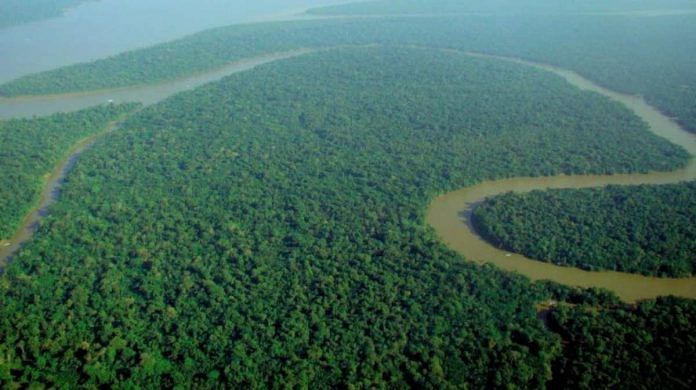Bengaluru: A new study published Wednesday in the journal Nature has quantified the impact of deforestation and fire on plant and vertebrate species in the Amazon, outlining losses to habitat and biodiversity since 2001 and what lies ahead.
The Amazon is projected to lose up to 45 per cent of its forest cover by 2050, with a tremendous impact on biodiversity, the study by researchers in North America says.
In their analysis of over 11,000 plant species and over 3,000 vertebrates in the Amazon basin, the researchers found — using remote sensing estimates of fire and deforestation — that nearly 189,000 square km of the rainforest (over 4 per cent of the total area) has been impacted by fires.
They estimate that this resulted in habitat loss for up to 85 per cent of threatened species in the region, and impacted 95 per cent of all Amazonian species.
Since the 1960s, nearly a fifth of the Amazonian basin has been deforested by human beings and fires. Global heating and the eventual increase in drought-like conditions have led to a corresponding increase in wildfires, the study found.
The authors noted that years of drought (2005, 2010, and 2015) had an effect on the extent of fires and burnt areas and that drought is a key factor that leads to forest cover loss by fire.
Also read: Where are Nazi Germany’s uranium cubes? New tracking method could reveal its missing trail
Extent of damage and damage-control
The authors estimate that for every 10,000 square kilometres of forest that is burned, almost 37 additional plant species and up to three vertebrate species (with more than 10 per cent of their range within the Amazon) will be affected. As fires move inward into the more biodiverse interiors of the Amazon basin, the impact is expected to be much greater.
The authors state that forest management policies in Brazil in the mid-2000s helped slow down the rate of habitat destruction. The change in government in 2019 — one of the most extreme years for impact on biodiversity — has, however, started to reverse the trend.
Relaxation of deforestation policies in Brazil in 2019 saw a substantial increase in area covered by fire, which was up to 28 per cent higher than normal and impacting over 13,000 species.
The authors also analysed other policies pertaining to supply chains for soya bean and beef, and the expansion of designated protected areas, as well as the enforcement of laws.
For their data, the authors used images from the Aqua and Terra satellites, which have
imaging sensors capable of monitoring forest cover, fire, and burnt woodland. The findings show the connection between policy and forest fires, and how governmental policies can help conserve or destroy biodiversity, conclude the authors.
The authors also state that a limitation of the study was that the number of species they studied — especially plant species — were few and that the satellites tend to underestimate the number of active fires and their extent.
(Edited by Paramita Ghosh)
Also read: Pilots saw red warning light during Branson’s spaceflight, probe on for off-course descent



